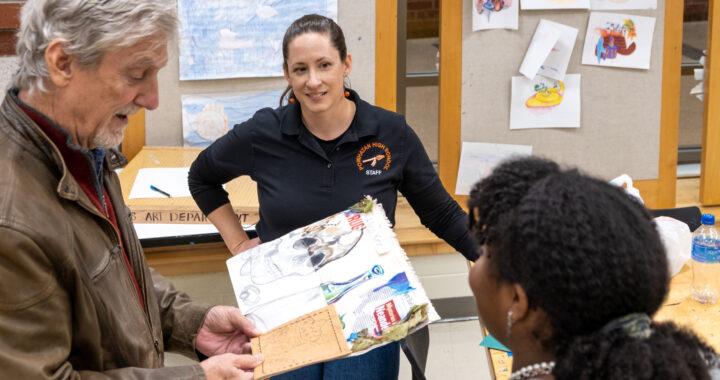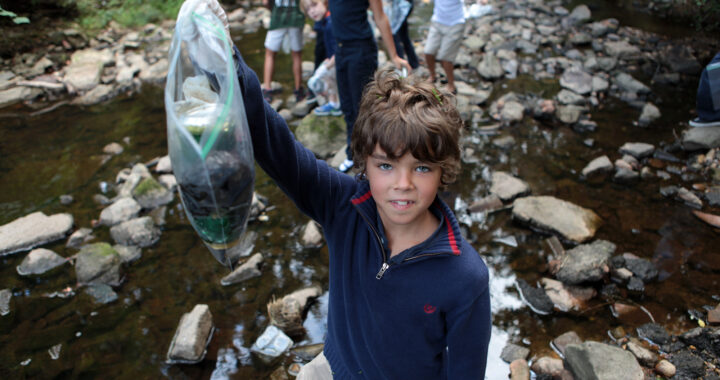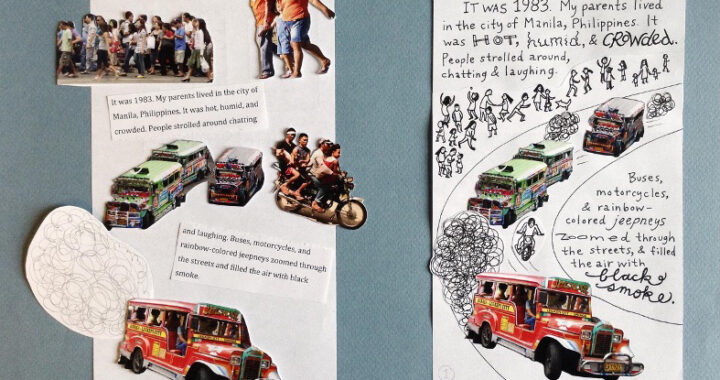In 2015, teachers in Midlothian, VA worked to develop an innovative and interdisciplinary Humanities program at Clover Hill High School. The initiative, led by Barbara Bingham and Rebekah Amato, aimed to help student academic performance and absenteeism by merging language arts with social studies classes. Hands-on arts practices, as well as community and cultural connections, were integrated into the units.
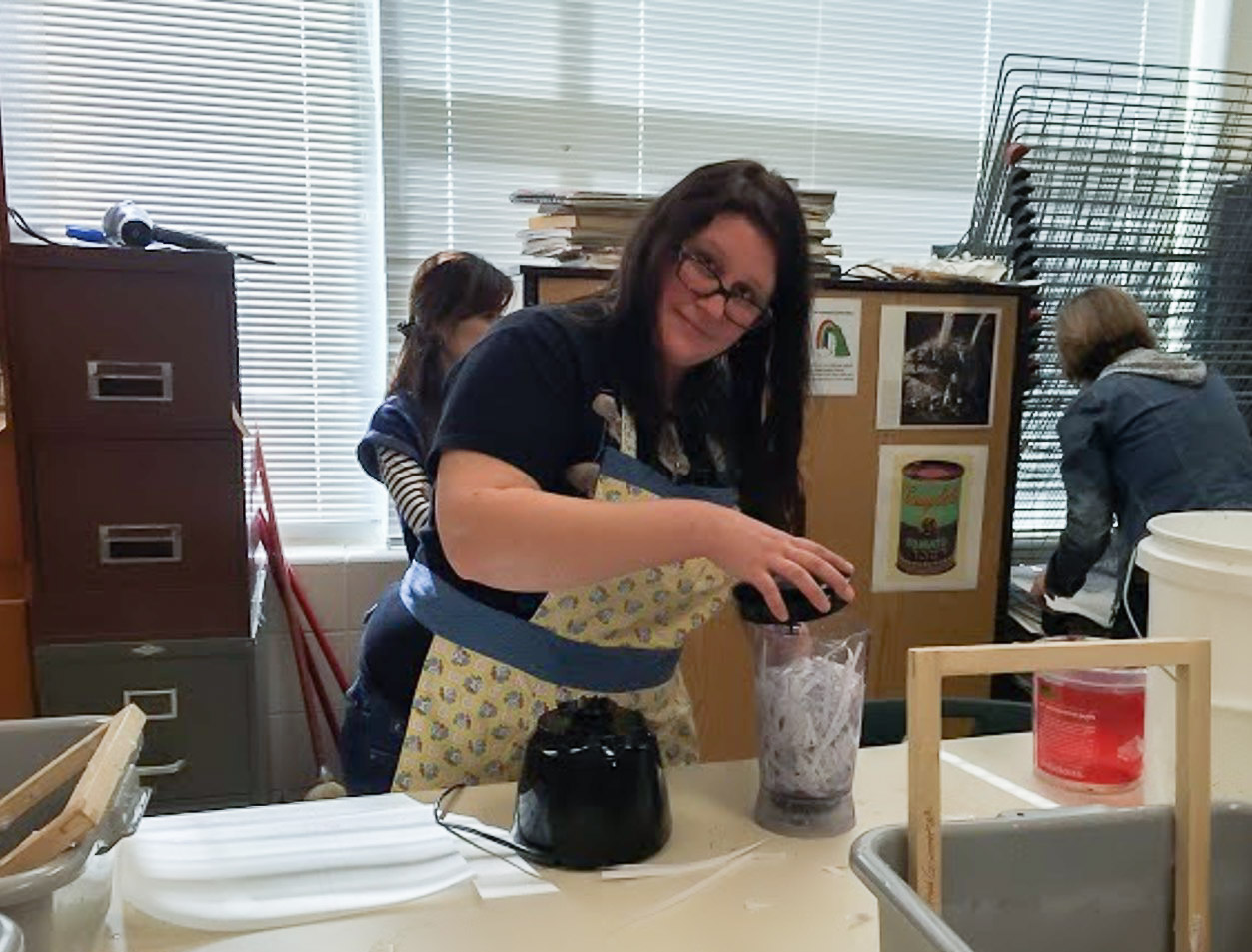
Students analyzed old history textbooks critically, then shredded them to make new paper and researched using primary sources
Partners in the Arts funded the project through its Engaging Creative Thinkers (ECT) Awards from 2015-2018 in three stages: emerging, sustaining, and leading. It serves as an exemplar for interdisciplinary and integrated learning at the secondary level. The impacts for Chesterfield County Public Schools were far reaching in both student achievement data and deep, meaningful learning experiences.
Redesigning Classes, Reimagining Learning
Redesigning coursework and curriculum is no small feat. Barbara and Rebekah described the work as “almost like first year teaching again – because we are creating almost everything from scratch. But almost because of that, we are reinvigorated.” The time commitment for professional development and overall instructional shifts did not deter teachers. The program proved so successful that it was expanded to include more students and teachers for two more years beyond the initial grant.
In the project’s second year, Civics and Citizenship, a new senior year capstone course, was developed specifically for students in need of an academic or behavioral boost. Seniors partnered with Clover Hill Elementary students for two years, creating books about the government branches as part of their literacy lessons. This gave them the chance to apply their learning while serving as role models to younger students. They also got into the community by organizing activities at Brandermill Woods, a local retirement community. Finally, students engaged with college and career professionals to develop a post-graduation plan.
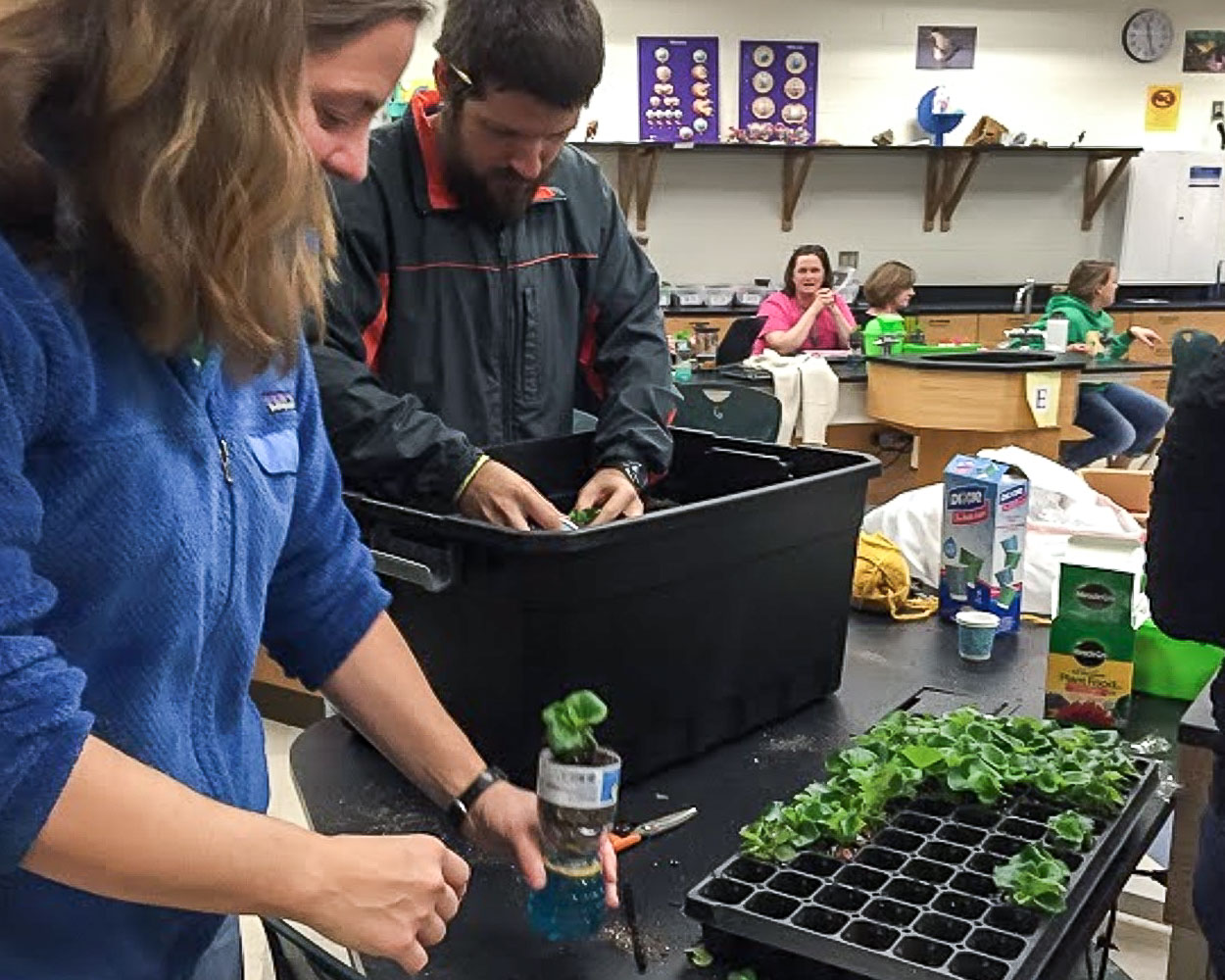
Students planted a Victory Garden on school grounds
Active Engagement in American History and Culture
The following descriptions are excerpted from the grant final reports.
Every week, students would produce pieces of art or engage in different activities that reflected their learning about history and culture of the United States. For instance, when studying World War I, the students modeled trench warfare by constructing trenches between classroom desks and chairs.
Chef Kevin O’Hare worked with students in an immigration culinary crossovers unit as students learned about the American Melting Pot through their Social Studies curriculum. Students learned about different culinary styles of different cultures, as well as how people from these different cultures assimilated in America.
Later, when studying WWII, students learned about Victory Gardens with the aid of homesteader Tyler Bruce. The unit culminated with hands-on experience planting crops in the Clover Hill courtyard with the aid of the Bruce family. While some students were nervous they “were not good at art” when beginning the program, the inclusion of culinary arts and landscape arts broadened their thinking about creative opportunities.
When studying the Jazz Age of the 1920s, students researched historical figures and acted them out in a “speakeasy party” while listening to 1920s music and looking at artwork from that time period. Students were engaged with the material and eager to come to school as they learned in a variety of ways. Collaborating with different professionals across various industries also gave students the opportunity to learn from a variety of different people.
Proven Results
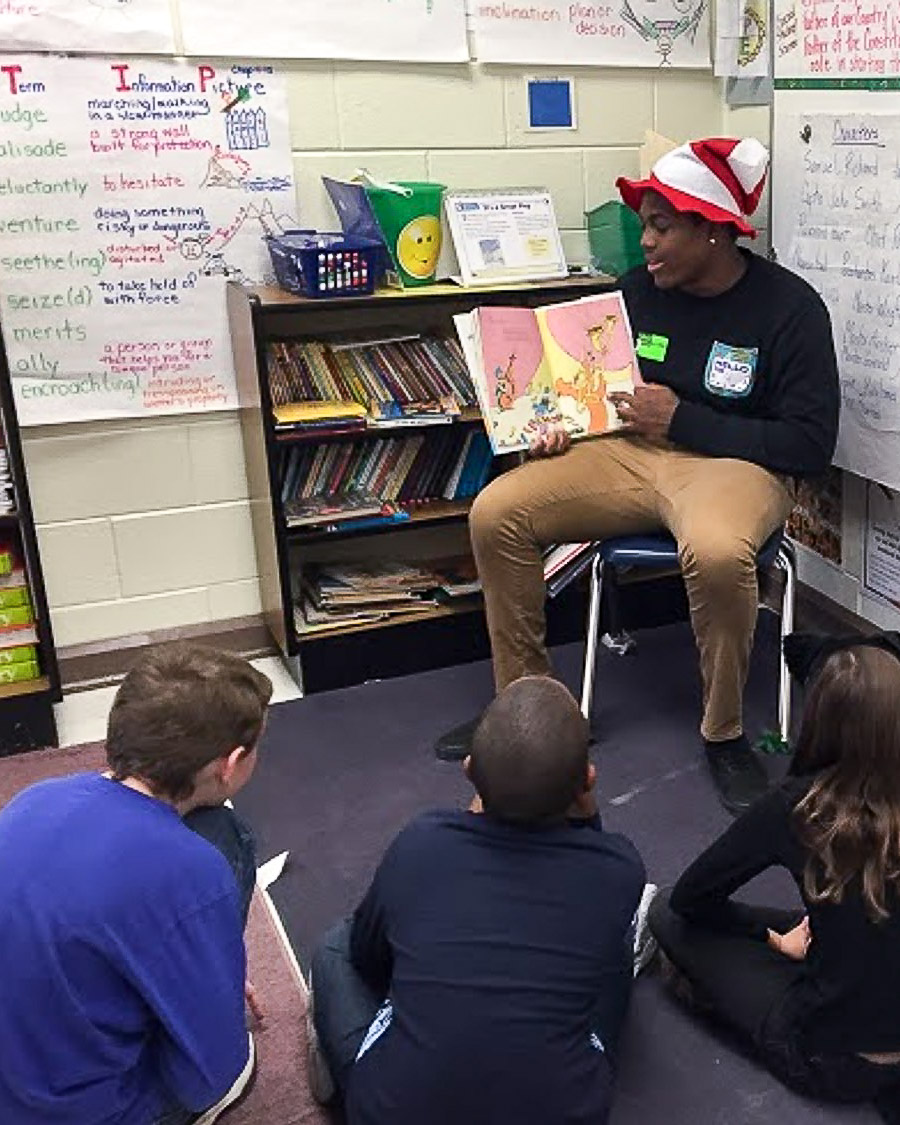
A student reads to Clover Hill Elementary students
While data was regularly collected on student performance, Barbara and Rebekah underestimated the effect this project would have on teachers. Training workshops were well-received and garnered positive feedback, and sparked discussions of integrated learning across the staff. Educators felt empowered to try new things in their classrooms and began to see themselves as facilitators of student-led learning. Even teachers of other subjects began to incorporate more student choice, Passion Projects, and project-based learning into their classes.
The results of the Humanities program for students stretched beyond the school’s initial focus areas. In addition to increases in both GPA (by an average of 0.5 points) and attendance (by 75%), students raised the passing rate on social studies and language arts state standardized tests, achieved 73% college acceptance, and showed improved behavior and engagement – and not just in Humanities classes. Students were excited to come to school and gained confidence in a wide range of skills. Arts integration, community connection, and cross-curricular instruction together can serve all students and transform learning.
Partners in the Arts (PIA) awarded Engaging Creative Thinkers (ECT) grants to teachers from 1994 to 2021. These grants made possible over 200 innovative, interdisciplinary projects in Richmond area schools. Since then, the PIA consortium has supported both educator professional development and in-school project implementation through the Joan Oates Institute for Integrated Learning.
The ECT Awards provided opportunities for teachers to reach all students across content areas, while developing critical thinking, creativity, collaboration, communication, and citizenship. ECT projects engaged a class, grade-level, or whole school, and connected teachers, students, families, and the community.
Alison Travis is the Program Coordinator for Partners in the Arts at the University of Richmond. She has spent ten years working in and with public schools to support integrated, innovative teaching and improve outcomes for all students.
